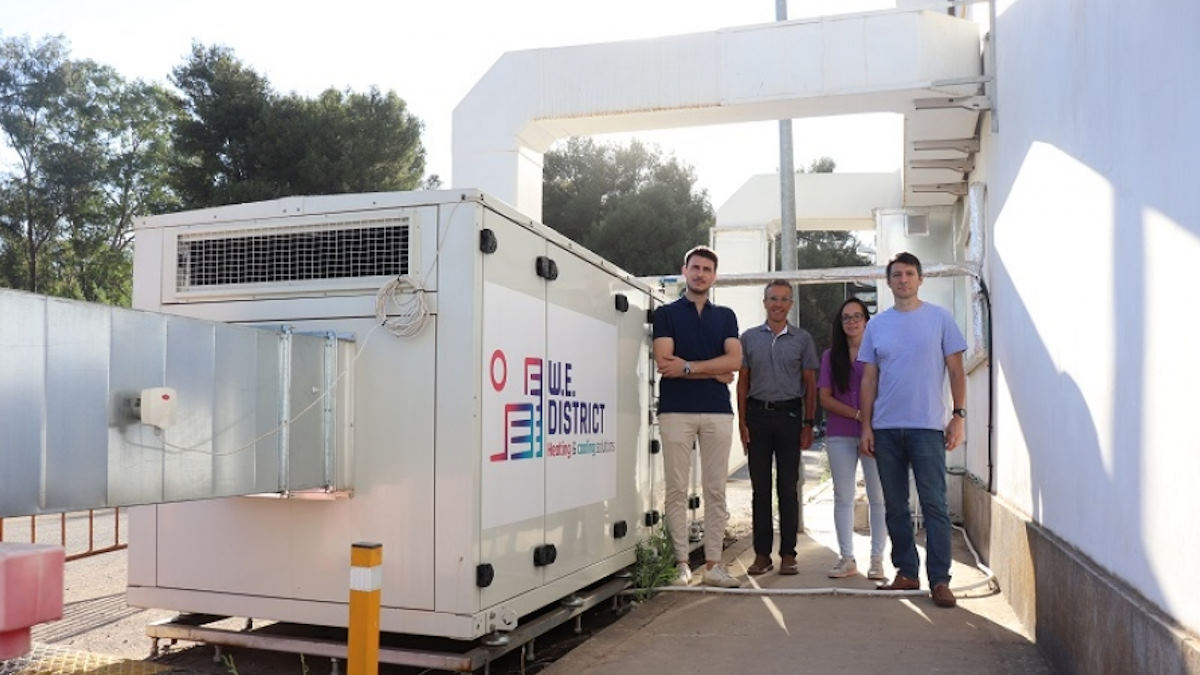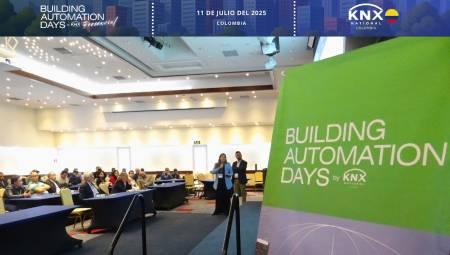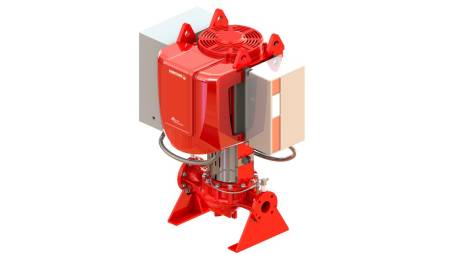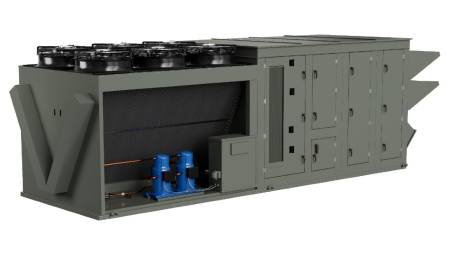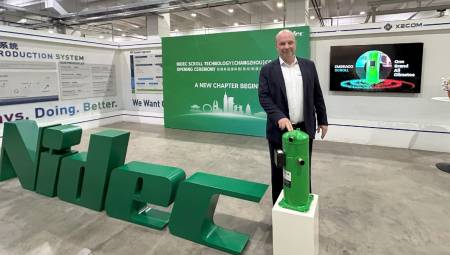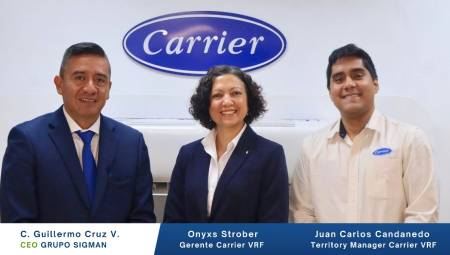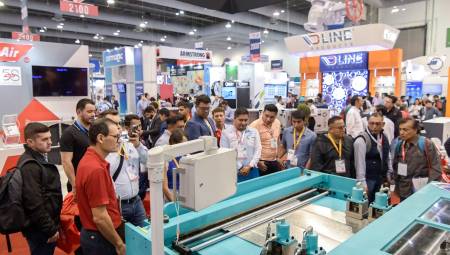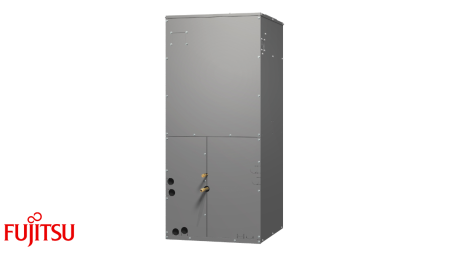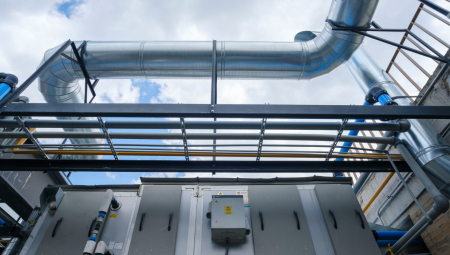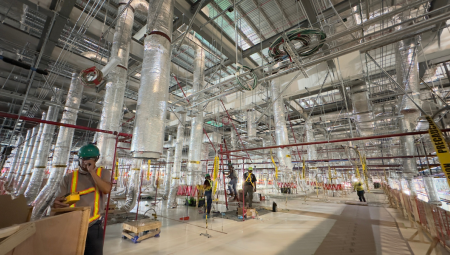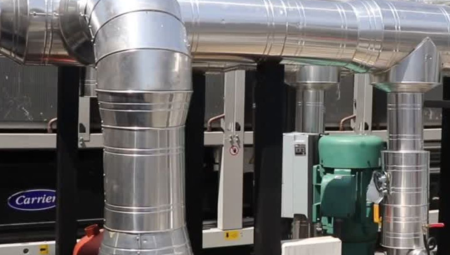International. The RACU cooling system, created within the framework of the We District project, uses renewable energy, does not use refrigerants, works with 100% outside air and allows the temperature, humidity and air quality inside the building to be controlled.
The high temperatures of the last few days have highlighted the importance of building cooling systems. Although most of the energy used to cool them comes from polluting energy sources such as gas, coal or oil, cooling systems are not incompatible with renewable energies. This is being demonstrated by the UCO research team "TEP-974, Research Applied Thermal Engineering" that has developed, within the We District project, a new refrigeration system called RACU (Renewable Air Cooling Unit).
 "Unlike traditional air conditioning systems, the RACU system uses renewable energy and its energy efficiency increases in situations of extreme temperatures, achieving a great cooling and dehumidification capacity," says Manuel Ruiz de Adana, head of the project at the UCO.
"Unlike traditional air conditioning systems, the RACU system uses renewable energy and its energy efficiency increases in situations of extreme temperatures, achieving a great cooling and dehumidification capacity," says Manuel Ruiz de Adana, head of the project at the UCO.
To this end, the RACU system uses two air treatment technologies: the desiccant wheel, which is responsible for drying the outside air by controlling humidity, and indirect evaporative cooling, which cools the air. With both technologies, and using hot water from a 100% renewable district network as an energy source, the system is able to convert the hot air outside into cold air to air condition the building.
The research team, made up of Francisco Comino, María Jesús Romero, Fernando Peci, Inés Olmedo and Manuel Ruiz de Adana, has designed and built the RACU system and, currently, the equipment is being tested at the Rabanales campus of the University of Córdoba during the heatwave period. If in traditional systems the increase in the outside temperature leads to a decrease in the efficiency of the equipment, producing less cold and having a higher energy consumption, in the RACU system the opposite happens: when the outside temperature increases, the equipment behaves better. So "in a scenario of extreme temperatures, the equipment is more efficient," says Comino. This is because indirect evaporation technology is characterized by having greater cooling capacity and energy efficiency when outside temperatures are higher.
 The experimental results obtained show that at 9 in the morning, with an outdoor temperature of 25º, the RACU system is able to cool the air to 16º, while at 42º at 6 in the afternoon the RACU system cools up to 17º with low energy consumption. In other words, "the cooling capacity and energy efficiency of the prototype is better in the hottest hours of the day, which is when more cooling is needed," says Romero.
The experimental results obtained show that at 9 in the morning, with an outdoor temperature of 25º, the RACU system is able to cool the air to 16º, while at 42º at 6 in the afternoon the RACU system cools up to 17º with low energy consumption. In other words, "the cooling capacity and energy efficiency of the prototype is better in the hottest hours of the day, which is when more cooling is needed," says Romero.
Increasing its efficiency in both normal and high-temperature situations is not the only advantage of the RACU system over traditional systems. In addition, it does not use refrigerant substances, so it has a low environmental impact. In addition, the RACU system uses 100% outdoor air which guarantees optimal ventilation and, in the covid scenario, it is an added advantage with low energy consumption. Research has shown that the energy consumption of the RACU is 4 times lower than that of a traditional system. Finally, in traditional air conditioning systems, users can control only the temperature, while with the RACU system users can control the temperature, relative humidity and CO2 of the room, guaranteeing optimal thermal comfort and excellent air quality in the building with low energy consumption.


